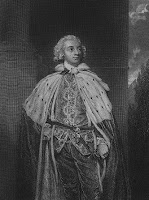New Archive Collections for June – Part I
This month sees the release of the catalogues of another five collections within the archive, the records of two medical institutions and three sets of personal papers. This post will look at the records of the two medical instructions and a later post will deal with the personal papers.
 |
VM./1/2/G/11
Thomas Wrigley Grimshaw,
founding member of the DSA |
The
Dublin Sanitary Association was founded in 1872 to improve the 'very defective sanitary arrangements in Dublin'. The Association had four main objectives; to educate the public about sanitary matters, direct attention to areas where existing powers were not fully exercised, monitor the course of sanitary legislation and to form a body in which the public would have confidence, which could act on behalf of the public. The Association was run by a committee, with a treasurer, secretary and President. The Association lasted into the 1910s, and was actively involved in raising awareness of, and improving, sanitary conditions in Dublin. The archive holds a handful of records relating to the Association, including three minute books (1883-1912), a letter book (1892-1892) mainly dealing with the sanitary arrangements in Dublin properties, and two volumes of newspaper cuttings (1879-1911). The Dublin Sanitary Association catalogue can be
downloaded here; in addition Dun's Library also holds copies of the Association's printed reports.
 |
| John Fane, 10th Earl Westmoreland |
The origins of the Westmoreland Lock Hospital are in the foundation of a hospital for venereal diseases (sexually transmitted diseases) in 1755 by George Doyle. In 1792 the hospital moved from its original location on Rainsford Street in Dublin to Townsend Street, where it was renamed the Westmoreland Lock Hospital in honour of the Lord Lieutenant of Ireland at the time. From 1819 men were no longer admitted to the hospital, receiving treatment at Sir Patrick Dun's or Dr Steevens' Hospital instead. The hospital continued to treat women, many of whom were prostitutes, partly a result of the large British Army garrisons in Dublin in the Nineteenth Century.
 |
Westmoreland Lock Hospital
|
In 1946 the hospital was renamed St Margaret of Cortona, but it closed ten years later as its services were no longer needed and the building was in a bad state of disrepair. On the closure of the hospital most of the twentieth century records were destroyed, the older records were transferred to the RCPI archive. These comprise patient records (1814-1894) including registers of admission and discharge; administrative papers (1792-1922) including minute books, letter books and a visitors' book; financial records (1792-1913) and a small collection of chaplaincy records (1861-1887). The catalogue of the Westmoreland Lock Hospital papers can be downloaded here.